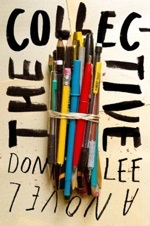Excerpt
Chapter 1 of The Collective
There’s a road in Sudbury, on the outskirts of Boston, called Waterborne. Famous for the great blue herons that nest there, the road cuts through the immediate floodplain of the Sudbury River. It’s lined with red maple, white oak, and dead ash yellows, long ago decimated by a virus. It curves and dips, wending through hills and an alluvial marsh, rising once again past meadows and farmland, then descending in a series of hairpin turns. It’s a beautiful road—smooth, continuous, unsullied by houses or businesses—and therefore popular with bikers, runners, and drivers in a hurry. To no one’s surprise, hardly a month goes by without some sort of accident on Waterborne.
It was around three o’clock on a Saturday afternoon in late September 2008, partly cloudy and unseasonably warm at seventy-six degrees, the tincture of fall edging the flora. Joshua Yoon, thirty-eight, was on his afternoon run on Waterborne, hugging the road’s left edge so he could watch for approaching cars. He had intended nothing for that day. The week before, in fact, he had arrived upon the method he’d use, suggested by a group on the Internet: he was going to put a clear plastic bag over his head, fasten the bottom of it around his neck with Velcro, open two canisters that would pump helium through tubes into the bag, and within minutes he would be unconscious and dead. Painless, quick, and efficient.
Once you decide to kill yourself, studies have said, there is clarity. You become focused. Your mood brightens. You’re blessed with a profound state of well-being. These sorts of decisions, momentous as they are, come willy-nilly. They begin as passing whims, an indulgence of reverie, and then, unbidden, they sharpen and coalesce within you, and you begin to fixate, and plan. You pay your bills, you write letters of instruction, you update your will, make funeral arrangements, buy an urn, label all your keys. There are only two things left to be determined—how and when. You have choices. You feel relief and joy.
This is not to say that Joshua was entirely lucid then. He was taking pills, so many pills. He was on antidepressants, anti-anxiety meds, mood stabilizers, sleeping pills, and painkillers, their effects aggravated by a recent experiment with robostripping, something he’d learned teenagers were doing, spinning a bottle of Robitussin centrifugally on a string to distill pure D.X.M. to the top. He was high, perhaps even hallucinating—not that it mitigates anything.
He was running on a stretch of Waterborne where drivers are slingshot out of a curve and accelerate. He heard a car coming, and, rather than keeping to the edge of the road, he drifted a few feet onto it.
Did he really mean to do it, to be hit by someone and killed? Could he have been so callous, willing to burden an anonymous driver, through no fault of his own, with a lifetime of trauma?
To this day, I am not sure. I go over and over it, and still I don’t know. Maybe Joshua, my old friend, had only wanted to feel the whoosh and rev of the car as it went by, the inches between death and continuance, how arbitrary the sway can be between the two. Maybe he had yawed drunkenly into the car’s path without volition or meditation. Yet the impulse had probably come across Joshua before, more than once, running on that road, to step in front of a speeding car, ending everything right then and there. Whatever the case, there was a witness, a driver approaching from the other direction, who claimed she saw Joshua veer abruptly and unmistakably into the path of the car.
The timing of it, the multiple, trivial interruptions that could have prevented any of it from happening: a stoplight, a phone call, a detour for ice cream, a playmate needing a ride home. A few seconds would have made all the difference.
A few seconds before the car came out of the turn, the little girl in the backseat, three months shy of her fourth birthday, had unbuckled herself and climbed out of her safety chair to pick up a book she had dropped. Her father was driving too fast, a bit impaired himself, having had a few drinks earlier at lunch. He disliked seatbelts and would have eschewed them altogether if not for the insistent warning beeps. That day, he had compromised by clicking in the lap belt and flipping the shoulder strap behind his back. He turned around to yell at the girl to get back in her chair right this minute. Then he glanced around and saw Joshua, ten feet in front of him on the road, too late to do anything, but swerving on instinct to avoid hitting him head-on. The car swiped out Joshua’s legs at an angle, crushing one of them and snagging the other on something, maybe the bumper, so his foot disarticulated at the ankle, much like twisting a chicken bone off at the joint. The impact vaulted his body into the air in deranged cartwheels, and the car itself flipped and rolled in the other direction, tumbling repeatedly and brutally, until it squashed to a rest against a stand of white oak. By then, the man and the little girl were slowly dying inside the car. Joshua was luckier, if one could call it that. He landed on his head on the asphalt, and the blunt force trauma to his brain killed him instantly.

